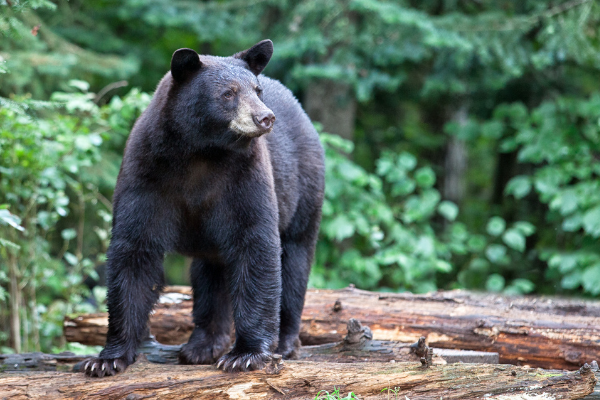A number of prominent animal advocacy groups have joined together to form the Connecticut Coalition to Protect Bears. Through educational outreach and legislative advocacy, the coalition will promote proven non-lethal strategies that allow people and Connecticut’s native black bears to co-exist.
The group’s first webinar, “Becoming Bear Aware in Connecticut: Learn how to keep bears wild and people safe,” was presented on Nov. 16 via Zoom. To watch a video of the presentation, click here.
“Learn about ways to peacefully coexist with CT’s black bear population and then join us in sharing that message with CT lawmakers,” said Jo-Anne Basile, executive director of CT Votes for Animals.
The members of the group—Humane Society of the United States, Connecticut League of Conservation Voters, Friends of Animals, CT Votes for Animals and Connecticut Wildlife Rehabilitators Association—created the coalition because of misleading information circulating about black bears in Connecticut, including that they need to be managed with a bear hunt.
“The truth is, black bears aren’t breaking down doors to harm you, your children or your pets like some scene out of a horror movie. Black bears are opportunistic feeders,” said Priscilla Feral, president of Friends of Animals. “And they are being baited by people’s birdfeeders and trash.”
People living in areas that bears frequent should take proactive steps like bringing in bird feeders from March through November, using bear-resistant trash cans, and waiting to put garbage cans out until the morning of pick-up. The coalition supports using legislation to get residents to comply with these strategies.
“We are thrilled to be part of a broad coalition to protect Connecticut’s small bear population,” said Annie Hornish, CT state director for The Humane Society of the United States. “There are simple things we all can do to keep people safe and bears wild.”
There is a weak correlation between the population of black bears and bear encounters, a study in The Journal of Wildlife Management found. Bear-human interactions are more closely correlated with human behavior.
And data shows that most incidents involving black bears in Connecticut could have been prevented if humans modified their behavior. For example, of the 3,507 black bear damage reports in 2020, 1,112 involved bird feeders and 1,356 involved trash cans.
Furthermore, researchers in other states have found that hunts do not eliminate the bears who wildlife agencies have deemed “nuisance bears.” Based on 10 years of data, researchers in Wisconsin concluded that the bears killed by hunters were not the same bears who people complained about elsewhere.

